Relevant Overviews
- Bluesky and the ATmosphere
- Content Strategy
- Knowledge4Policy
- Fediverse
- Online Strategy
- Online Community Management
- Social Media Strategy
- Content Creation & Marketing
- Online Architecture
- Digital Transformation
- Change & Project Management
- Blockchain, Crypto, NFTs etc
- Personal Productivity
- Innovation Strategy
- Surveillance Capitalism, Social media and Polarisation (Overview)
- Communications Tactics
- Psychology
- Social Web
- Media
- Politics
- Communications Strategy
- Science&Technology
- Business
Overview: Online Community Management
Convening a community can be the most powerful communication tactic there is.
Online communities offer enormous opportunities to the right organisation. Community members are far more likely to read your content, think of your organisation, give you feedback, share your content, attend your events, get involved in your programmes, and buy your products.
On the other hand, convening a community is hard: few people have time for more than a couple of online platforms in their lives, so attracting them to yours means you need to be uniquely useful to them.
That generally requires a change of mindset and new internal processes across the organisation, because it’s not your community - it's theirs. And getting their involvement means really listening to what they have to say, and then visibly acting on it.
I built the EU Commission’s first online community in 2002, and have built many more successful ones since. If you’d like to chat, get in touch.
More services: start with Communication strategy.
Relevant resources
"ATProtocol already supports... Permissioned data ... a love triangle between the user, the identities they grant permissions to, and the applications [which] view controlled data".Nick Gerakines first briefly summarises a previous post setting out how to build permissioned data into atprotocol: adding an optional service field pointing to "a serv…
"the most enduring social networks ... [are] the ones that empower organizers... coaches, teachers, volunteer coordinators, union stewards, event planners, health workers, running club hosts, activist organizers, and owners of community-based businesses ... making decisions on behalf of a group ... turn a collection of individuals into a functi…
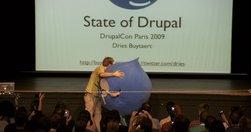
Drupal founder Dries Buytaert: "Looking back, the most important things I learned weren't really about software. They were about people, scale, and what it takes to build something that lasts. Twenty-five years, twenty-five lessons."I won't list them all here, just reflecting on those that resonate with and/or surprise me the most:"Growth and gene…
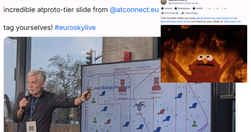
"Large organisations need dedicated tools and processes to manage their Bluesky presence and get the most out of ATproto".A repost onto Medium of version 4 of a wiki page I've been developing for most of the year.
Nekomimo "built cutebook, a tiny library that lets you add a guestbook to any website. Visitors sign in with their Bluesky account, leave a message, and that message gets stored in their own data repository. No database on your end. No user accounts to manage. Just two web components and a few lines of configuration" - and she explains how, and ho…
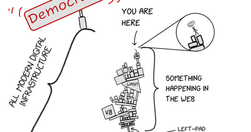
"What happens when you put politicians, media businesses and protocol engineers in the same room to discuss European sovereignty?" - my post following Eurosky.Live in Berlin, November 2025.
Some thoughts on technical issues surrounding building communities on ATproto, although it doesn't address the issue of what happens to someone's "community posts" when they leave a community?"AT makes it easy for individual accounts to publish things, and to build global aggregations from them. But community spaces are a bit different... forums …
"trolls seek negative attention and ignoring them removes their reward... When someone posts inflammatory content, makes personal attacks, or tries to derail conversations with bad-faith arguments, they're fishing for reactions ... trolls derive pleasure specifically from "negative social potency", aka knowing that others are annoyed... non-enga…

"A journalist gets blocked by Bluesky, but her Bluesky posts can still be seen via Blacksky. This apparent contradiction goes to the heart of resilient social media, where businesses must support their users to stay in business"
Another ATproto app in the linkedin space, "ProtoPro is the future of businesses and professionals connecting online. With AT Protocol, your identity, graph, and content are portable, secure, and under your control."
"at://work is a modern job board that leverages decentralized identity and social networking. We believe in empowering professionals to own their digital identity while connecting with meaningful career opportunities... ensures that your professional profile and job postings remain under your control. "
An account from a conference session describing and exploring "a new class of digital democracy tools is helping people dialogue, deliberate, and make decisions together... greater legitimacy to policymaking, build trust in governance processes, and help the public appreciate policy tradeoffs... a democracy tech stack could supercharge public part…
When this was written there were 23m Bluesky users: "Some publishers report traffic and conversion rates three to four times higher compared with platforms like Threads and X, despite Bluesky’s smaller user base.... EUobserver received 3,800 unique visitors from Bluesky (with 3,300 followers) compared to 1,320 from X (with 203,000 followers)...Fo…
This study examines:"the shift in the scientific community from X to Bluesky, its impact on scientific communication, and consequently on social metrics", following the Academic Twitter migration. Is there "evidence of a community shift", and if so "examine the differences in values and indicators..."? "provide valuable insights into whether Blue…
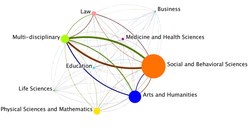
This preprint "looks at the dynamics of this migration" from X to Mastodon of academics: using "publicly available user account data, we track the posting activity of academics on Mastodon over a one year period... gathered follower-followee relationships ... finding that the subset of academics ... were well-connected. However, this strong intern…

"Horizontal connections and membership community have kept subscriber churn for the English-language publication under 2%". The focus is community: "weekly behind-the-scenes missives (like how journalists keep working through air raids) to members... near-superhuman levels of responsiveness... a lot of human connection".But their strategy focuses …

"the online world seem so toxic ... [because of] a small number of divisive accounts", according to a researcher in "topics such as intergroup conflict, misinformation, technology and climate change", who found that "what we’re seeing online is a warped image created by a very small group of highly active users".SOcial media is "a funhouse mirror.…
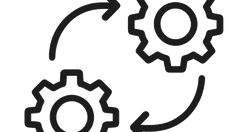
"the next era of social media—built in Europe, run on our cloud, ruled by our laws... Social media is critical infrastructure, and a vital piece of the European tech sovereignty agenda... we need to build infrastructure ... on the AT Protocol... We have a plan for immediate action that can begin having an impact in 2025".Part of Free Our Feeds, …

Mike Masnick notes, as the "Bluesky is dying" discourse moves into it's 3rd? week, that it's "a bit odd: when something is supposedly dying or irrelevant, journalists can’t stop writing about it". But the premise of these critiques is wrong as they "fundamentally misunderstand what people want from social media and who gets to decide what constitu…
A deep dive into the April 2025 "censorship" on Turkish Bluesky illustrates that government censorship on ATmosphere apps is limited and will become even less effective as more people exploit its decentralised nature.Context in brief:March 2025, the Turkish "government ordered X to restrict access to various X accounts ... associated with the prot…

The go-to article you need when you want to show how anything online can spiral into a commenting catastrophe, using as a case study "the website for ... a radio station in Melbourne... published a peppy, harmless instructional post for the making of an "Amazing Rainbow Tie-Dye Number Surprise Cake.""Thank god they took screenshots.
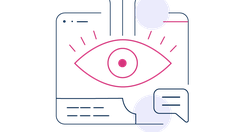
OpenSocial's AI integration provides "a unique AI model trained on your specific platform data... Gaia Chatbot transforms how you access information, making every interaction a seamless exchange of knowledge discovery".Works with all AI providersautomatic tagging and classification"adapts in real time to user ... individualized community journey"A…
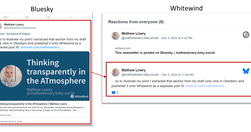
If, like many, you think Bluesky is "Twitter, but with less Nazis", this post is for you.
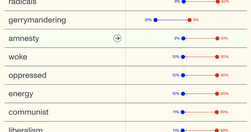
"Could seeing how opposite sides of the US political spectrum use the same words differently be a first step toward greater cross-political understanding?... What if generative AI could help us understand people with opposing views better just by showing how they use common words and phrases differently?"MIT's Bridging Dictionary (BD) research …
"Blacksky Algorithms, the team behind Blacksky and rsky, is now officially Blacksky Algorithms Inc", a Delaware C-Corp with its own fiscal host, and bigger ambitions."Blacksky will continue to rely on voluntary, member-supported subscriptions while also building and hosting technical infrastructure for developers, communities, and teams".Short-ter…
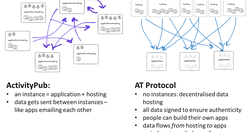
My mid November 2024 newsletter summarises how a deep dive into Bluesky has changed how I view #AI4Communities, and summarises some of the most influential things I've read recently.
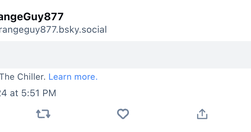
Bluesky's announcement of their open-sourcing of "Ozone, our collaborative moderation tool... individuals and teams can work together to review and label content", coupled with the ability for people and communities to "run your own independent moderation services, seamlessly integrated into the Bluesky app".This enables "an ecosystem of moderatio…

"Decentralizing the Web means people ... store their data wherever they want, while still getting the services they need... requires major changes in the way we develop applications... In this post, I discuss three paradigm shifts a decentralized Web brings"Rather than "accept package deals we cannot customize", redecentralising the web allows us …
"I rarely work for the same client for more than a year or two - generally enough to help them figure out their strategy, pilot and demonstrate it, and set up the team to mainstream it. But I make an exception for the Joint Research Centre"A few slides, repurposed for LinkedIn, setting out "some of the key innovations underpinning the Knowledge4Po…

"Only people can trust, but only machines scale well. Today’s websites and apps are built to compensate for an absence of trust, rather than to support its growth."Instead we have the 'I accept' button: "we know we are lying the moment we touch it, as does the author of the legalese no one expects anyone to read. Navigating a trustless world is a …
Relevant Overviews
- Bluesky and the ATmosphere
- Content Strategy
- Knowledge4Policy
- Fediverse
- Online Strategy
- Online Community Management
- Social Media Strategy
- Content Creation & Marketing
- Online Architecture
- Digital Transformation
- Change & Project Management
- Blockchain, Crypto, NFTs etc
- Personal Productivity
- Innovation Strategy
- Surveillance Capitalism, Social media and Polarisation (Overview)
- Communications Tactics
- Psychology
- Social Web
- Media
- Politics
- Communications Strategy
- Science&Technology
- Business